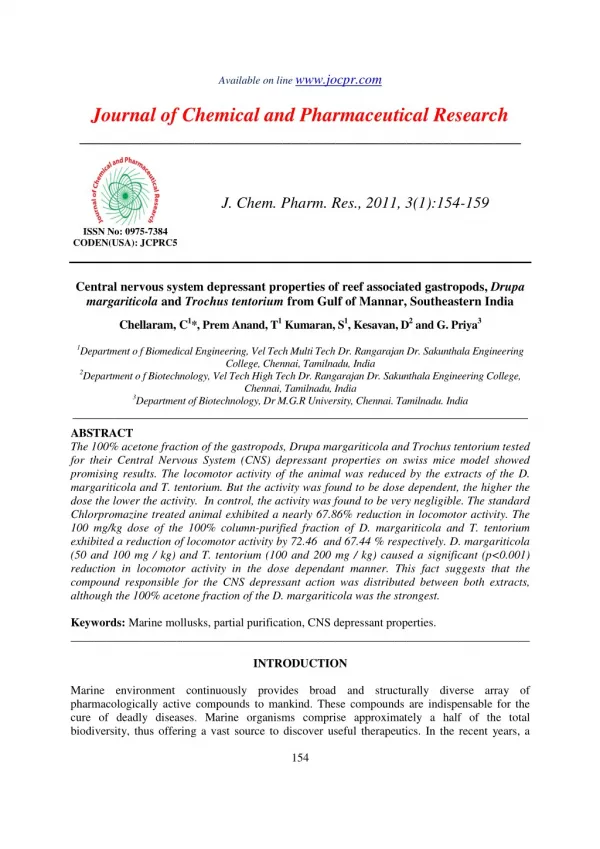Central nervous system depressant properties of reef associated gastropods, Drupa margariticola and Trochus tentorium fr
The 100% acetone fraction of the gastropods, Drupa margariticola and Trochus tentorium tested for their Central Nervous System (CNS) depressant properties on swiss mice model showed promising results. The locomotor activity of the animal was reduced by the extracts of the D. margariticola and T. tentorium. But the activity was found to be dose dependent, the higher the dose the lower the activity. In control, the activity was found to be very negligible. The standard Chlorpromazine treated animal exhibited a nearly 67.86% reduction in locomotor activity. The 100 mg/kg dose of the 100% column-purified fraction of D. margariticola and T. tentorium exhibited a reduction of locomotor activity by 72.46 and 67.44 % respectively. D. margariticola (50 and 100 mg / kg) and T. tentorium (100 and 200 mg / kg) caused a significant (p<0.001) reduction in locomotor activity in the dose dependant manner. This fact suggests that the compound responsible for the CNS depressant action was distributed between both extracts, although the 100% acetone fraction of the D. margariticola was the strongest.
★
★
★
★
★
92 views • 6 slides
